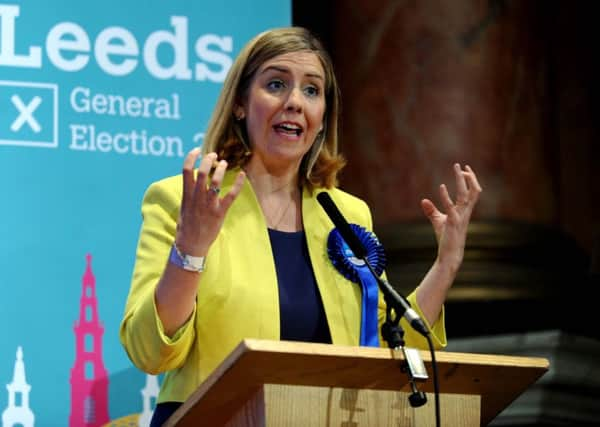James Reed: Race to make sense of new political reality


Conservative candidates who thought there was a better than even chance that they would now be MPs have been left scratching their heads, not just over the fact they lost but by the margin of defeat. “Pretty astonishing” was how one summed it up to me.
The confusion is shared on the Labour side too. “I still can’t quite understand what happened” was the thought offered by one of the party’s MPs who feared their seat might be under threat.
Advertisement
Hide AdAdvertisement
Hide AdOf course neither of these sentiments correlate with the narratives that have emerged from either camp since last Thursday. Conservatives have been lining up to criticise the party’s campaign while, on Labour’s side, Jeremy Corbyn has gone from shambling liability to the man single-handedly responsible for engaging the young and thereby reinvigorating British politics.
History is always re-written in the aftermath of general elections.
In the build-up to the 2015 poll few Conservatives gave Andrea Jenkyns a hope in Morley and Outwood. But since her defeat of then Shadow Chancellor Ed Balls became the moment everyone remembered of that election night I’ve lost count of the Tories who have told me it was all part of a grand plan.
The reality is this: Last Wednesday, Conservatives were confident of taking several Yorkshire seats, Labour sources were conceding they had lost some constituencies in the region and Liberal Democrats were confident Nick Clegg and Greg Mulholland would be safe. They were all wrong.
Advertisement
Hide AdAdvertisement
Hide AdIn all cases, they were all honestly reporting what their canvassing returns, and other local information, were telling them. It was a trend mirrored across the country and why Jeremy Corbyn was seen in Labour-held seats in the closing days of the campaign while Theresa May was chasing votes in unlikely Conservative territory such as South Yorkshire.
It will take some time to fully understand what happened, but a surprisingly large surge in the heavily pro-Corbyn youth vote and the 2015 Ukip vote splitting more evenly between Conservative and Labour than expected appear to be the major drivers.
All the parties will be reviewing their intelligence gathering to understand how these trends were missed or under-estimated. They need the best information possible to ensure they are putting their efforts where they are needed. Labour had to go through a similar exercise in 2015. After weeks campaigning to win in Elmet and Rothwell, Pudsey, Calder Valley and others, they lost in Morley and Outwood. In 2017, the Conservatives were campaigning in Dewsbury, Halifax and Wakefield and lost Keighley and Colne Valley.
One step in the right direction would be to select candidates earlier.
Advertisement
Hide AdAdvertisement
Hide AdEven before polling day, a consistent piece of feedback, particularly from Conservative candidates challenging Labour incumbents, was how much campaigning time was lost as associations appointed candidates and logistics were put into place.
Candidates found themselves trying to win seats where they had not seriously campaigned for many years. Volunteers, materials, canvassing routes all had to be organised, and at incredibly short notice.
There will be lazy candidates, and others who proved not up to the task, who their parties should take the opportunity to jettison before the next election. There will also be other candidates who have now realised that being an MP is not for them. I know of at least one who had a very realistic chance last week but, judging by accounts from colleagues, did not enjoy being in the public eye as much as they had imagined.
But for the rest who relished the campaign and tried their best, there seems little reason to go through the rigmarole again. Swift re-selection would give candidates the chance to properly establish themselves in the communities they hope to represent, build up their name recognition and to develop their campaigns on local issues.
Advertisement
Hide AdAdvertisement
Hide AdIt would also help them to pick up the crucial signs that both parties missed in the last seven weeks.
New forces have been unleashed in British politics and the major parties are struggling to understand and quantify them. The first to do so will enjoy a significant electoral advantage when voters next go to the polls.